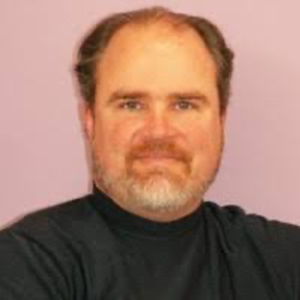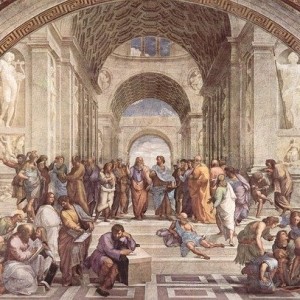Episodes

Tuesday Sep 29, 2020
Episode 110 - To Solve Big Problems: Let’s Get Small!
Tuesday Sep 29, 2020
Tuesday Sep 29, 2020
-
In this episode, Paul and Bill are back together for a conversation that catches up on past episodes which pondered big problems in science, government, the economy, personal well-being, and more. The pondering focused on solutions as matters of step-by-step processes, but as our conversation starts, we’re feeling a bit overwhelmed by the enormity of the problems, their quantity and complexity. Society relies more and more on government, which has proven it does not perform long-term planning very well. And it doesn’t really have the needed resources and insights it claims to have.
-
Ultimately, the solutions are at the individual level and in communities and communion. Paul recommends Chesterton’s biography of St. Thomas Aquinas. The Church does have amazing resources for building up faith and hope in ourselves and others—with insights at the local and global level. Of course, the Church too is in a vulnerable and broken position in its circumstances as a human institution. Paul and Bill wonder how the Church can exercise influence in the nature of evangelization and civic duty at a time when the world needs better problem-solving that respects but transcends our various individual differences and weaknesses. Collectively, intellectuals are a tiny minority, and God must love rednecks (literally with red necks) because these are the working people. Here’s an inspiring story about rednecks. We must aim to do much of our work, with God’s help, in small steps and initiatives that growing corporations and growing empires of power will consider small and off-the-radar. The reference to “Let’s Get Small” looks to Steve Martin and an old “Saturday Night Live” performance in which he left a message that stuck with Bill.
-
A big part of the answer is Catholic Social Teaching. These principles can give us approaches and motivation and starting points for conversations about a sense of purpose to unite us. Again, it entails humility, not pontification, because at the individual level we need to act in our families and communities to get involved in bringing these principles to life—perhaps by going into politics, or getting involved in a civic organization, or simply accepting responsibility to assist some kind of repair work on one of society’s obvious wounds. This may involve joining groups, like the Knights of Columbus, to fight for many causes including racial justice. If we join the Democratic Party, our role would be to push for reform and renewal—but then again, the Lord would require us to do the same thing in the Republican Party.
-
Hilaire Belloc said the defining feature of the self-proclaimed “practical man” is his inability to reason back to first principles or forward to final consequences. Our politics are likewise defined by politicians thrashing about myopically trying to win individual elections. We need to provide our own grass-roots strength for each other, through solidarity, that gives us confidence to approach the public square with the particular abilities we may have to help. Often, this participation is best done at the local level, through family and community and small groups where we can make a distance and experience people’s needs, strengths, and dignity. This is the principle of subsidiarity.
-
Overall, the solutions and principles point us toward small, not huge solutions. Paul and Bill have talked in the past about how the fields of science and government, for instance, are hobbled in handing us solutions because there is little capacity for long-term planning or even long-term thinking at those grander scales. Many gaps appear in such an entrepreneurial macro-setting: Why did we fail to plan for this or that? Why did we not see this coming? We must be thinking small but thinking big. This is the economy of God and a strength of the Catholic Church, whose purview is local and global, individualistic and cosmic.

Tuesday Aug 25, 2020
Episode 108 - Masks, Science, Novelty, and Conservatism
Tuesday Aug 25, 2020
Tuesday Aug 25, 2020
or Paving Paradise and the Parking Lots
Bill and Paul discuss attitudes toward masks, and then consider why the science wasn't more settled on the subject long before Covid-19. We discuss the obsession of modern society with all things novel and consider how this plays out in science, politics, and our individual lives and families.
1. A discussion of masks as defenses against the pandemic led Paul and Bill to ponder how scientific knowledge about the functionality of these masks for the common good is not always viewed as a fundamental, enduring value. In our media, the mask discussion gets wrapped up in political and symbolic and power-struggle considerations. The methodical pursuit of knowledge based on shared values and needs has been partly replaced by a marketplace of ideas that gets bored with what we know. Support for ideas gets hijacked by pursuits of vaguely defined notions of progress which are relativistic and individualistic and not systematically carried out through time.
2. Paul pointed out that he sees in the world of science that there are some surprising gaps in knowledge about certain things that resulted partly from people seeing no particular motivation—or research grant money—to drive knowledge forward. With some important exceptions, knowledge in some fields grows more randomly than through a coordinated sense of purpose. Paul recalled an earlier discussion about “p values” that can fail to give researchers the persistence born of confidence that next stages of knowledge will give us what we need to solve problems in a meaningful way.
3. As Paul put it, a “p value” may tell you the likelihood of your data given your hypothesis, but what we’d really like is to know the likelihood of our hypothesis given our data.
4. Bill pointed out that traditional notions of the university seemed to have a more obvious commitment to nurturing, collecting, and spreading knowledge so that it could become the reliable framework for incrementally building new knowledge that brings us closer to solving problems. But there is a notion in the present-day university—and in the marketplace, as Paul agreed—that progress is gained through disruption—dismissing or dismantling or deconstructing current knowledge because it isn’t as exciting or satisfying as a march toward future knowledge can be. That knowledge is seen as inherently better, Bill said, but our eager disregard of today’s knowledge suggests we will treat tomorrow’s knowledge in the same dismissive way. So we’re moving but not really expecting to get anywhere better as a society.
5. We’re caught up in the search for novelty. We’re looking for the next revolutionary thing that makes old learning moot. Shouldn’t we be trying to build and improve upon the good parts of the status quo. Can we find a golden mean between a love for innovation and a desire for preservation (a conformism?) that values the knowledge already acquired. In some sectors, has innovation been redefined at its very roots? Are we disinterested in the long-term trajectories of our human engagements and projects? Are we only focused on doing what’s new, bigger, and better in the current moment, leaving little interest in yesterday or tomorrow?
6. We’re describing a disposable mindframe. Today’s sense of urgency amid impending crises can make us so focused on new action for its own sake that we are willing to disrupt or tear down much of our current life and the history that brought us here. There seems to be too little argument in favor of recognizing the good things we have achieved and our responsibility to conserve/preserve these things. We have so much social capital built up over time, we feel less responsibility to preserve current sources of stability and sustainability. It seems okay to tear these things down. In periods of human history where survival has been more at stake, where there has been less of a cushion of social capital, the marketplaces of ideas and capital have more doggedly pursued incremental change which values and builds upon what has come before. On a grand scale, we don’t expect to feel a pain of loss, but at the personal and spiritual level, people are feeling the pain of loss, fear for the future, dislocation and disconnection, all the time. Indeed, our overall happiness as a society has eroded.
7. People have come to see the future as so urgently problematic that they’re more willing to quickly and readily dispose of stuff from the past without allowing any grounded time or space for wise transitions. No one is coaching us to press pause.
Audio editing by Morgan Burkart.

Monday May 25, 2020
Episode 102 - Diverse Isolation Stories Could Bring Us Together
Monday May 25, 2020
Monday May 25, 2020
Paul and Bill discussed autism—a subject that arose in Paul’s discussion with Pat Flynn in his own podcast.
John Ratey, popular psychologist, talks about how our sensory apparatus affects how we function in everyday life.
Paul’s comments on the subject of autism connect candidly with recollections from his early life.
Hilaire Belloc, a legendary British author of the early 20th century who wrote on many topics, famously was a friend and Catholic “fellow traveler” with G.K. Chesterton.
“Never waste a good crisis.” Bill says crises in our polity and society are often weaponized rather than used as a learning, community-building experience. This maxim, worded in different ways, has been attributed to various persons, from Rahm Emmanuel to Winston Churchill to Saul Alinsky.
Image by Sukinah Hussain from Pixabay

Monday May 11, 2020
Episode 101 - Pandemics as a Science Problem; Skepticism in a Diseased World
Monday May 11, 2020
Monday May 11, 2020
Part 2 of a three part conversation between Paul and Bill, where the main themes are skepticism, Catholic education, the mysterious absence of the Spanish Flu from our historical consciousness prior to 2020, and the philosophical conundrums of materialism, transgenderism, and scientism.
- Paul and Bill continued their conversation about skepticism toward science and religion. They touched on several examples of science failing to show that it “knows everything” or gets everything right. There must be a constant push for additional inquiry and knowledge. Bill said the teaching of religion in K-12 Catholic schools needs to express the hunger to learn more—the dynamic sense of joy in seeking God—just as the teaching of science sets an exciting stage for learning.
- The co-hosts discussed the lack of sure scientific knowledge about the COVID-19 pandemic. This led to references to the Spanish flu. Its history is poorly understood by most people, just as there was poor understanding in 1918 about the flu’s origins and impacts.
- Philosophy and natural science became unmoored from each other after the 17th century. Bertrand Russell appeared to share an opinion that Paul considers quite natural—the reluctance to accept that no philosophical inquiry into reality can be conducted without employing at least some original, foundational assumptions.
- Stephen Pinker acknowledges that materialistic thinking suffers from logical inconsistencies, Paul said. He referred to Pinker’s landmark book, The Blank Slate, an inquiry into the origins of human nature.
- Quantum physics, in its effort to explain how everything works by describing the behavior of atoms, is full of paradoxes, Paul said.
Image by Miroslava Chrienova from Pixabay

Monday Apr 13, 2020
Episode 099 - Secular Franciscans on World’s New Views, Old Values
Monday Apr 13, 2020
Monday Apr 13, 2020
In this episode, Bill presents excerpts from an interview with fellow Secular Franciscan Tim Short, director of formation for the Indiana Region. They discuss, among other things, St. Francis' attitude toward creation and how it relates to the larger picture of the medieval Christian intellectual world and the birth of modern science.
- Tim Short, OFS, is a member of the Secular Franciscan Order, whose initials in Latin are OFS. This international, canonically approved Roman Catholic order was founded by Saint Francis of Assisi especially for laypeople. Members belong to local, regional and national fraternities. Tim is the director of formation for the Our Lady of Indiana regional fraternity. He previously served as formation director for the Immaculate Conception local fraternity of the Order (still commonly abbreviated as SFO in the United States), located in Mishawaka, Indiana.
- Tim and podcast cohost Bill Schmitt are both professed members of the SFO, having professed a lifetime commitment to the Rule of Life which St. Francis composed. Francis also composed rules to govern orders of friars and nuns, the latter commonly called the Poor Clares.
- Tim has been instrumental in starting a new website that will serve SFO fraternities’ needs for “ongoing formation.” Find this “OFS Ongoing” website at https://secularfranciscansusa.org/ongoing-formation-resources/ When you visit the site, you’ll see a major resource Tim composed for a series of small-group discussions that can be used by any fraternity but was used first by the fraternity in Mishawaka. The resource, “A Journey Through John,” is based on the Gospel of John and reflects the importance Secular Franciscans are to place upon the Gospels as keys Francis used in building an intimate relationship with Jesus Christ. Resources drawn from Franciscanism, Pope Francis, and the beloved “Peace Prayer of Saint Francis” have been composed by Bill Schmitt and are also described at the new website.
- Other priorities in formation include an ever-deeper embrace of the Rule of Life and of the early writings from St. Francis and his friars who provided authoritative insights into the foundational Franciscan charisms.
- Tim pointed out in our interview that Saint Francis lived during a time when the old ethos made little distinction between Catholic religious thinking and what we would call scientific thinking. A time of greater doubt and division was emerging during Francis’ lifetime (circa 1180-1226). Francis’ sense of mission emphasized peacemaking, healing, and an embrace of natural life in all of creation, so one can see him as a bridge-builder encouraging love and awe for circumstances we would deem ripe for scientific analysis.
See more of Tim's work at ofsongoing.com.

Monday Mar 23, 2020
Episode 097 - Social Distancing and Loners in the American Psyche
Monday Mar 23, 2020
Monday Mar 23, 2020
Bill and Paul discuss the topic on everyone's mind, the coronavirus and social distancing, through the lens of social polarization and isolation that already so characterized American, Western, and modern society in general.
- One should not assume that “social distancing” breaks connections. Paul and Bill got together to talk about the subject and found that it connects to many other things, at least as an intellectual exercise. But also with many emotional, spiritual and sociological implications.
- Bill said that, upon first hearing about “social distancing,” he instinctively connected it to a phenomenon he ponders and writes about a lot—the phenomenon of social polarization. (He writes about it in his OnWord blog, and in 2018 he wrote a book (When Headlines Hurt: Do We Have a Prayer?) reflecting on Pope Francis’ concerns about the polarizing effects of contemporary news and digital information flows.
- Social distancing, apart from the validity of scientific claims that it is needed to combat the COVID-19 pandemic, looked to Bill like a physical, societal manifestation of the polarization trend which leads to the isolation, exclusion and defamation of people. It encourages them toward confirmation bias because they choose to hear only the opinions that back up their pre-conceived notions.
- Paul said social distancing also seems to tie into America’s infatuation with the “loner.” He recalled the self-imposed isolation discussed in Robert D. Putnam’s 2000 book, Bowling Alone.
- Both participants in the conversation connected the concept of loner with many ideas: the modern assumption that being a loner need not carry high risks, like it once did, because of the protection offered by government; the omnipresent promise among colleges that they will prepare their students to become “leaders” as opposed to followers; the observation by Alexis de Tocqueville (in Democracy in America) that Americans of the 1800s were instinctively individualists; and the more recent observation that we live in an age of celebrity when everybody wants to famous, even in relatively impotent, purposeless ways. This latter notion was discussed by Catholic philosopher Peter Kreeft in an episode of EWTN’s “The Philosopher’s Bench.”
- It is especially sad that, at a time when Pope Francis points out that the Church has many valuable responses to the tendency toward social polarization and isolation, “social distancing” has prompted an end to Mass attendance. As remarked in a blog post by David Seitz, OFS, one of Bill’s favorite Franciscan commentators, the loss of civic solidarity and civil conversation is a profound kind of penance.
Image by Austin Monroe from Pixabay.

Monday Jan 27, 2020
Episode 093 - The Great Divorce between Philosophy and Science
Monday Jan 27, 2020
Monday Jan 27, 2020
Bill and Paul are both losing their minds with stress this week, so we're glad to just get the episode out. It takes in a bit of philosophy and Paul manages to use some illustrative points from the history of geometry and geology if that's your thing.
I didn't get her credited in the outro, but Morgan Burkart produced the audio for this episode. Like her style? Let us know in a review and look her up at Ball State University.

Monday Nov 18, 2019
Episode 086 - Indianapolis Gold Mass
Monday Nov 18, 2019
Monday Nov 18, 2019
Today's episode is a rundown of the Indianapolis Gold Mass, followed by a short selection of readings from Scripture and a bit about Albert the Great specifically, with a scrap of meditation on the vocation of a scientist.
- Gold Masses for those in the natural sciences were celebrated in a dozen cities on Nov. 15, the feast day of St. Albert the Great, who is the patron saint of natural scientists. One of those Masses, as described by TSSM co-host Dr. Paul Giesting, took place in Saints Peter and Paul Cathedral in the Archdiocese of Indianapolis.
- The Society of Catholic Scientists is the pre-eminent sponsor/supporter of these Gold Masses as part of an initiative established relatively recently. The Society’s website contains a page where the most comprehensive listing of planned Gold Masses is compiled.
- What is a Gold Mass? The SCS provides this information.
- Here are details of the life of St. Albert the Great.
- The Criterion, newspaper of the Indianapolis Archdiocese, is expected to publish an article about the Nov. 15 Gold Mass in early December.

Monday Nov 11, 2019
Monday Nov 11, 2019
- Today's episode is getting recorded in a tight slot on Sunday night. Bill is out of town at a workshop on self-publishing and Paul has spent an awful lot of time over the last three days peering into the engine bay of a 1987 Jeep Wrangler and screwing and unscrewing things.
- Robert Barron and Brandon Vogt pulled excerpts from the Joe Rogen - Dawkins interview and spent two weeks rebutting them. That's one point of departure for today's episode. The other, of course, is that the feast of Albert the Great is this coming Friday, meaning Gold Mass season is at its frenzied (?) peak, and Albert the Great is one of the cast of figures who put together the great medieval synthesis of Catholic Christian thought with Aristotelian philosophy and science. I myself just finished a curious old book called Roman Science by William Stahl, and that will probably also be in the back of my head as I riff a bit. (Yes, for tonight I'm writing the liner notes first and attempting to monologue to fit them.)
- Bill has an ebook, hence the self-publishing drive: When Headlines Hurt, Do We Have a Prayer?
- Get up to date listings on Gold Mass locations and times!

Thursday Aug 29, 2019
Post Christian: The Galileo business in 250 words
Thursday Aug 29, 2019
Thursday Aug 29, 2019
I prepared these notes for an interview with Brigid Ayer on the Faith in Action Show for Catholic Radio Indy, but ended up using almost none of them. We talked instead about matters in the present day, and why Bill (also on the interview) and I started TSSM. The interview is planned to go up the third week of September, with the podcast version of the episode on their PodBean feed Monday the 16th and the radio broadcast later in the week.
The dominant proximate source for this was a blog post or two from the Vatican Observatory blog, which I cannot even find right now, due to a surplus of riches in their coverage of the subject. For your own purposes, there are also a million books. I loved Galileo's Daughter; I haven't yet gotten up the courage to tackle The Galileo Affair: A Documentary History.
Science, Church, Galileo.
The Galileo affair was a messy piece of work, which a number of people, bishops and cardinals included, inside the Church recognized at the time. Galileo himself remained a Catholic and endured his condemnation with irritation as an obvious miscarriage of justice and a misapplication of the Church's own teachings. At the time, his ideas were considered by a number of people to be heretical both because they contradicted simple-minded interpretations of certain passages in the Bible and because, essentially, they contradicted Aristotle.
Aristotle's philosophy is immensely insightful, and continues to be a viable means of interpreting reality, but not all of it equally. The Scholastics had fought a long campaign to integrate Aristotle into the fabric of Christian doctrine, and the result was a beautiful intellectual accomplishment, but it allowed Aristotle to take too much significance even in matters where his thinking is simply not that insightful or valuable. He took the geocentric universe for granted.
When Galileo set out to prove the geocentric model wrong, it was easy for people at that time of religious turmoil to condemn him. On one side, Catholics who were sensitive to the shrill Protestant shrieking about Scripture were not eager to be forced into reading the handful of passages that seem relevant to the issue poetically or figuratively. On the other, in attacking something that Aristotle taught, essential or not to his philosophical framework, Galileo could be read by others to be trying to overturn all of philosophy and theology along with it.
The condemnations of 1633 were never enforced all that rigidly, and during the 18th and 19th centuries the official proscriptions on his thought and writings were loosened. The popes since Leo XIII have piece by piece vindicated Galileo completely, culminating in two statements by John Paul II (in 1991 and 2000, as I recall, and also belonging on the reading list) that said the cardinals and popes in 1613-1633 had made mistakes and been wrong to treat Galileo the way that they did.
The condemnation of Galileo was never a matter of infallible magisterium. The magisterium of the Church is exercised in the matters of faith and morals, not astronomy or philosophy, and not even social science. Further, the trial of an individual is not the sort of place one would look for magisterial teaching. Some of the Ecumenical Councils were called to try heretics like Arius, and those are the very definition of magisterial teaching, but you only get an E.C. called to debate your writings if you have 1) a massive movement, hence your trial is not really about you, but about ideas wandering at large in society and 2) the issue you are leading people on about is actually squarely in the arena of the teachings of the faith.

